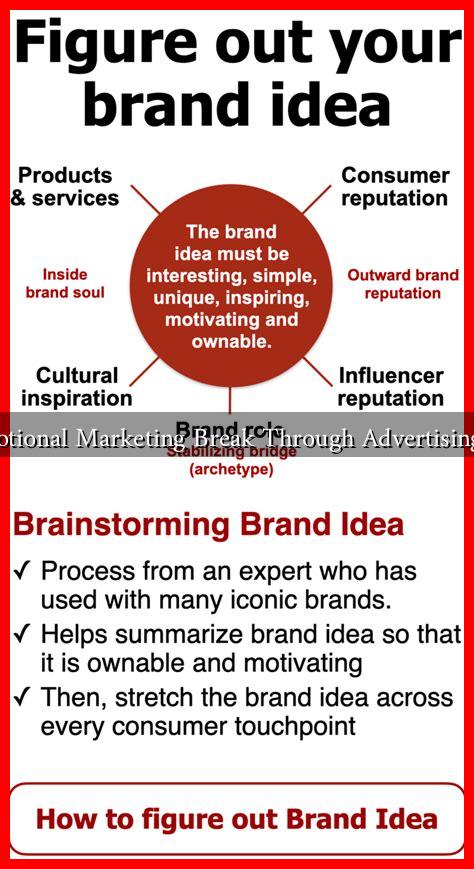-
Table of Contents
Can Emotional Marketing Break Through Advertising Clutter?
In today’s fast-paced digital landscape, consumers are bombarded with an overwhelming amount of advertising content. From social media feeds to email newsletters, the sheer volume of marketing messages can lead to what is known as “advertising clutter.” In this environment, brands are increasingly turning to emotional marketing as a strategy to cut through the noise and connect with their audiences on a deeper level. But can emotional marketing truly break through this clutter? This article explores the effectiveness of emotional marketing, supported by case studies, statistics, and expert insights.
The Power of Emotional Marketing
Emotional marketing leverages the power of human emotions to create a connection between the consumer and the brand. By appealing to feelings such as happiness, nostalgia, fear, or empathy, brands can foster a sense of loyalty and engagement that transcends traditional advertising methods. According to a study by the American Marketing Association, emotionally charged ads are more likely to be shared and remembered than their rational counterparts.
Why Emotional Marketing Works
Several factors contribute to the effectiveness of emotional marketing:
- Memory Retention: Emotional experiences are more likely to be remembered. A study published in the journal Cognition and Emotion found that emotional stimuli are processed more deeply, leading to better recall.
- Social Sharing: Content that evokes strong emotions is more likely to be shared on social media. According to a report by HubSpot, emotionally charged content is 30 times more likely to be shared than content that is purely informational.
- Brand Loyalty: Emotional connections can lead to increased brand loyalty. A study by McKinsey & Company found that emotionally connected customers are more than twice as valuable as highly satisfied customers.
Case Studies: Brands That Got It Right
Several brands have successfully utilized emotional marketing to break through advertising clutter:
- Always – #LikeAGirl: This campaign challenged gender stereotypes and resonated with audiences by promoting female empowerment. The ad went viral, generating millions of views and sparking conversations about gender equality.
- Coca-Cola – Share a Coke: By personalizing their product with names, Coca-Cola tapped into the emotional connection people have with their names and relationships. This campaign led to a significant increase in sales and brand engagement.
- Google – Year in Search: Google’s annual recap videos evoke nostalgia and highlight significant global events, creating an emotional connection with viewers. These videos consistently receive millions of views and positive feedback.
Statistics That Speak Volumes
To further illustrate the impact of emotional marketing, consider the following statistics:
- According to a study by NerdWallet, 70% of consumers prefer brands that tell a story over those that simply promote products.
- A report from Adweek found that ads with emotional appeal outperform those with rational appeal by a factor of 2:1.
- Research from Harvard Business Review indicates that emotionally connected customers have a 306% higher lifetime value than those who are just satisfied.
Challenges and Considerations
While emotional marketing can be highly effective, it is not without its challenges:
- Authenticity: Consumers are increasingly savvy and can detect inauthentic attempts at emotional connection. Brands must ensure their messaging aligns with their values.
- Over-Saturation: As more brands adopt emotional marketing strategies, the risk of emotional fatigue increases. Brands must find unique ways to stand out.
- Target Audience: Understanding the target audience’s emotional triggers is crucial. What resonates with one demographic may not work for another.
Conclusion
In a world filled with advertising clutter, emotional marketing offers a powerful tool for brands seeking to connect with consumers on a deeper level. By leveraging the power of emotions, brands can enhance memory retention, encourage social sharing, and foster brand loyalty. However, authenticity and a clear understanding of the target audience are essential for success. As the landscape continues to evolve, brands that master the art of emotional marketing will likely find themselves standing out in a crowded marketplace.

